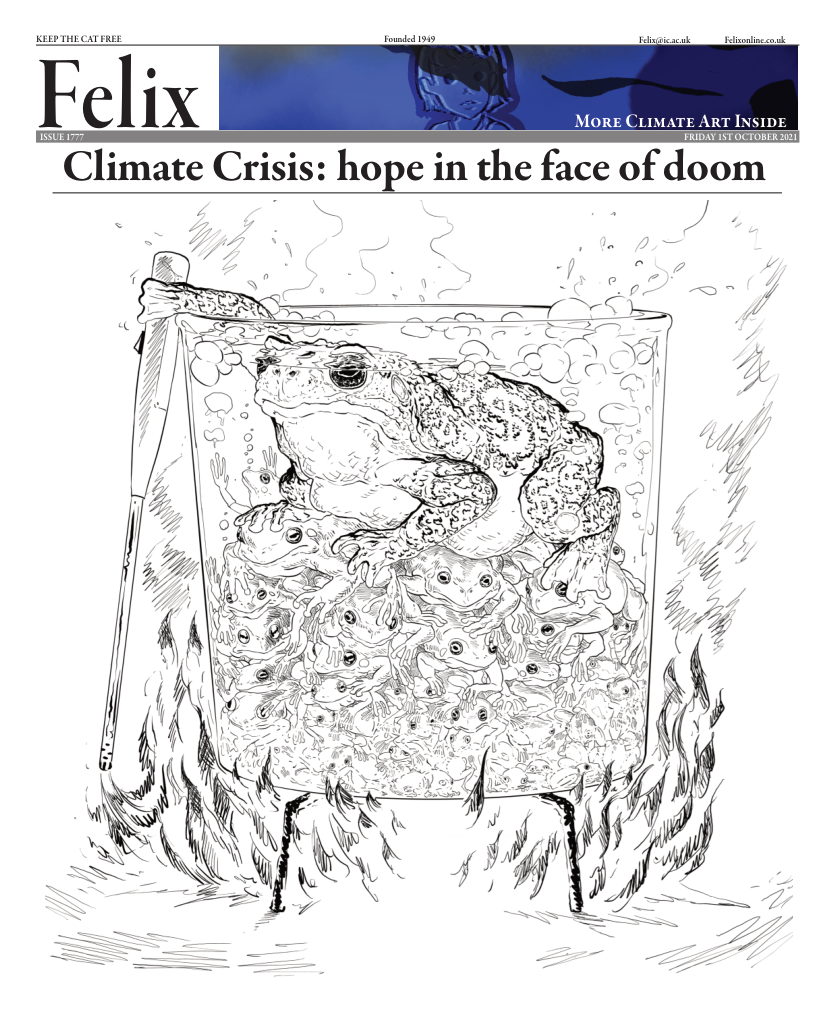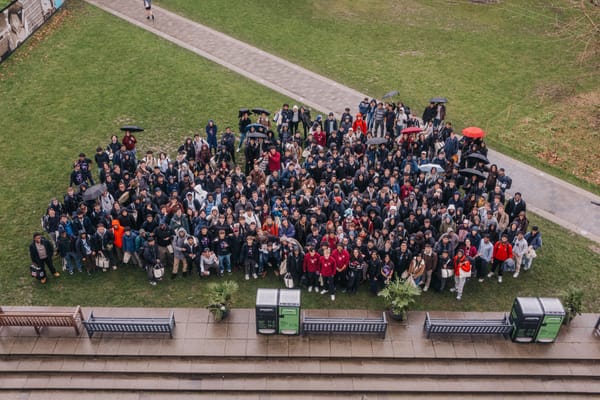Philosophy is not dead!
To answer the important questions, Imperial needs to embrace philosophy

“Science without philosophy, facts without perspective and valuation, cannot save us from havoc and despair. Science gives us knowledge, but only philosophy can give us wisdom.”
- Will Durant
What are the most important problems facing humanity today and how should we address them? These are, at heart, philosophical questions: they concern values, and ask how we ought to act. Imperial College London is one of the world’s leading universities, and hence, one of the institutions that we can depend on both to ask, and answer, such questions. Yet, Imperial has no philosophy department, in fact, it has no substantial humanities departments at all. When conducting research on science which affects humanity, scientists need to be aware of the long-term implications of this research.
The university focuses exclusively on science and technology and the culture is one of productively continuing the march of scientific progress. In addition, strong industry connections naturally focus research efforts on concrete applications. What is often lacking is a carefully considered view of what we ought to do with the machinery of science. This is apparent in the day-to-day lives of many of the researchers and students at Imperial. For students, the workloads are heavy, the deadlines numerous and frequent, and the focus is on training to quickly produce practical results. This is good training for a role in industry but there is less time, under this regime, for reflection on what has been learned, and less encouragement to step back and evaluate one’s long-term goals, or the goals of the society which these students will help to shape. The case is similar for researchers, many of whom fall prey to the “publish or perish” game. Pressures to pump-out as many papers as possible naturally lead to those papers’ focusing on safe, incremental results; again, there is less room for reflecting upon the purpose of research, advancing riskier but more important directions, or covering new ground.
Fuelled by technological progress, we are in a period of unprecedented power over the future
These issues surrounding the culture of Imperial are, at least in part, a consequence of the minimal humanities and a neglect of philosophical thinking. Culture is inherently a product of the individuals who make up a community. Since the individuals who make up Imperial are, in the vast majority, scientists and engineers, the ideas and norms of the community are technocratic and technosolutionistic. If the Imperial community included more social scientists and philosophers, this would expand its diversity of thought and broaden the range of ideas under discussion. In particular, more philosophical thinking would lead to an appreciation of the big picture questions such as “what is our research for?”.
This is not to disparage the brilliant scientists working at Imperial, nor their contributions. The latter are of very real value to the world and help improve the lives of many people (e.g., the work done at Imperial on pandemic risk and climate change is evidently important). But the incentives inherent in the culture stifle the abilities of researchers to address the questions that we accept as important and prevent some questions from being asked at all.
However, at Oxford, Cambridge, and other universities around the world, there is an emerging community of researchers who explicitly look to ask and answer the big questions facing humanity. At the Future of Humanity Institute, the Centre for the Study of Existential Risk, the Stanford Existential Risk Initiative, and a few other institutes in major universities, multi-disciplinary teams of academics bring the tools of mathematics, philosophy, and social sciences to bear on big-picture questions about humanity and its long-term prospects.
Among these communities there is a growing appreciation for the value of considering humanity's long-term future, and a belief that the present may be one of the most important time-periods in humanity’s lifespan. Fuelled by technological progress, we are in a period of unprecedented power over the future. Nuclear missiles, advanced artificial intelligence, and biological weapons are just some of the technologies humanity could use to destroy itself. Yet, our technological progress has not been matched by a corresponding growth in wisdom. We lack the moral and philosophical maturity to protect ourselves, and our future descendants, from irremediable mistakes.
Luckily, it’s not too late! Imperial's new initiative "I-X" is a multidisciplinary environment for research across emerging digital technologies which aims to "build a better future". But it has no philosophers! No social scientists! I-X is an opportunity for Imperial to change its culture, to invite a wider range of voices to the table, and to give genuine philosophical thought to the future of humanity.
In short, Imperial College London is undoubtedly one of the best scientific institutes in the world. But it is not enough to continuously turn the wheels of science; without a greater appreciation for philosophical questions of the value and purpose of research, we run the risk of driving an accelerating car without stopping to think about the direction in which we are headed.







